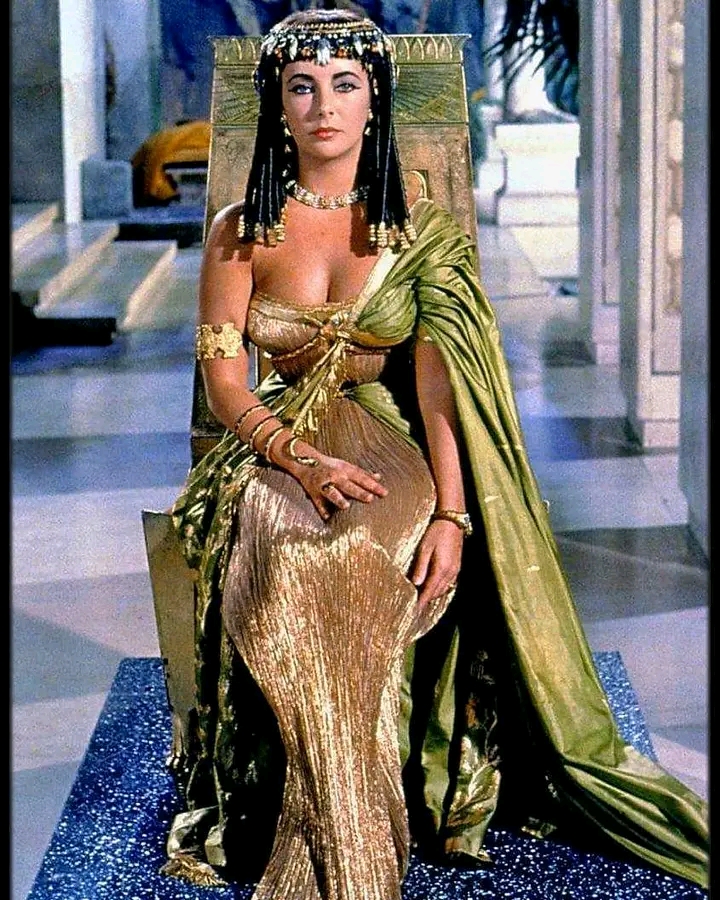Strange But True • Emma Onyemaechi • 6 March, 2025
Some unknown truths about Cleopatra you did not know
» 473 Views

Cleopatra's Early Life and Ascension to the Throne
Cleopatra VII was born in 69 BCE and ascended to the throne at the age of 18, following the death of her father...
Cleopatra's Early Life and Ascension to the Throne
Cleopatra VII was born in 69 BCE and ascended to the throne at the age of 18, following the death of her father Ptolemy XII. She was the last active pharaoh of the Ptolemaic Kingdom, which was a Greek dynasty that ruled Egypt after the death of Alexander the Great. Her ascension marked the beginning of a tumultuous period in Egyptian history, filled with political intrigue and diplomatic maneuvering.
Before you continue, follow History Explorer for more of this kind of information.
Linguistic Abilities
One of Cleopatra's most impressive attributes was her mastery of languages. She was known to speak Koine Greek, which was the common language of the Mediterranean world at that time. Additionally, she was one of the few members of the Ptolemaic dynasty who could read and write Ancient Egyptian, including hieroglyphics. This skill allowed her to connect with her Egyptian subjects and understand the rich cultural heritage of her kingdom.
Cleopatra's linguistic repertoire may have also included languages of neighboring regions, such as those spoken by the Parthians, Hebrews, Medes, Syrians, Ethiopians, and Arabs. This multilingualism was a testament to her intelligence and her desire to engage with the diverse cultures of the ancient world.
Intellectual Pursuits
Beyond her political acumen, Cleopatra was deeply interested in various intellectual disciplines. She studied geography, history, astronomy, international diplomacy, mathematics, alchemy, medicine, zoology, and economics. Her pursuit of knowledge was driven by a desire to understand and master the sciences and arts of her time.
Scientific Contributions
Cleopatra spent considerable time in what could be described as an ancient laboratory, where she conducted experiments and developed recipes related to herbs and cosmetics. Her work in these areas was notable, and she wrote several books on these subjects. Unfortunately, most of her writings were lost in the devastating fire that destroyed the Great Library of Alexandria in 391 AD.
Influence on Medicine
Cleopatra's contributions to medicine were significant, and her work was studied by prominent figures like Galen, a renowned physician of the Roman Empire. Galen is known to have transcribed some of Cleopatra's recipes, including a special cream intended to help bald men regain their hair. Her knowledge of languages allowed her access to numerous ancient papyri that are now lost, further enriching her understanding of herbal healing.
Legacy
Despite the loss of her written works, Cleopatra's influence on the sciences and medicine was well recognized in the early centuries of Christianity. She remains a unique figure in human history, celebrated for her intelligence, political savvy, and intellectual curiosity. Her legacy continues to inspire fascination and admiration, making her one of the most enduring figures of the ancient world.
Recently Viewed Posts

|
A loose mouth is a lost dignity 441 Views |
Most Read Posts

I am Yours, (Gospel Music) by Emediong Udofa
1.4K views
Latest Updates
Brazilian Billionaire Reportedly Leaves £846 Million Fortune to Neymar
- September 5, 2025
History of FECA Nigeria National Conventions (1995-2024)
- September 5, 2025Rwanda Makes History With Africa’s First Self-Flying Electric Air Taxi
- September 5, 2025
10 Reasons Why Women Get So Attached to Men After Sex
- September 4, 2025Young Nigerians Chasing Fame Are Dipping Bread in Dirty Water
- August 29, 2025Recent Events and Flyers
Video



















